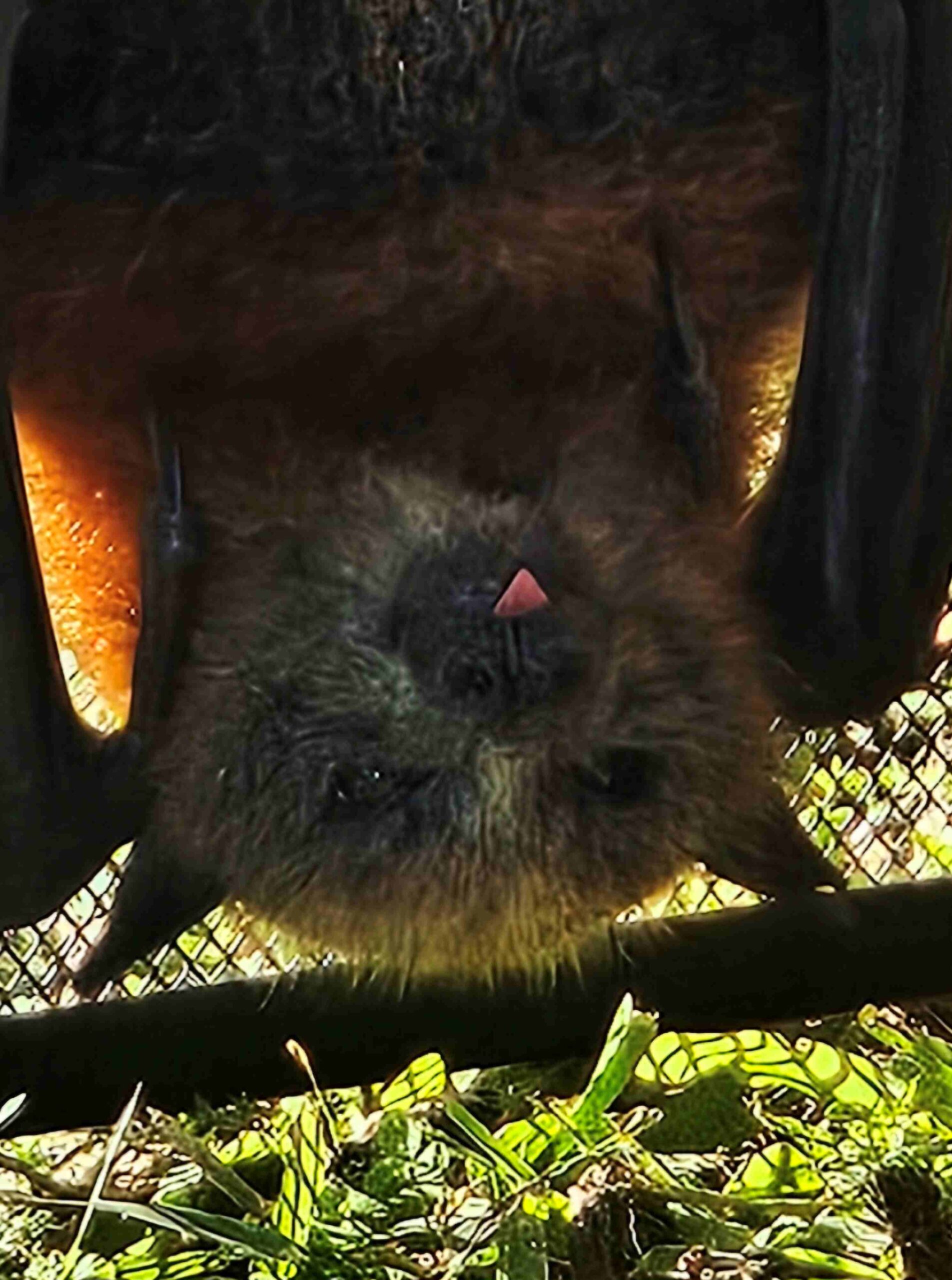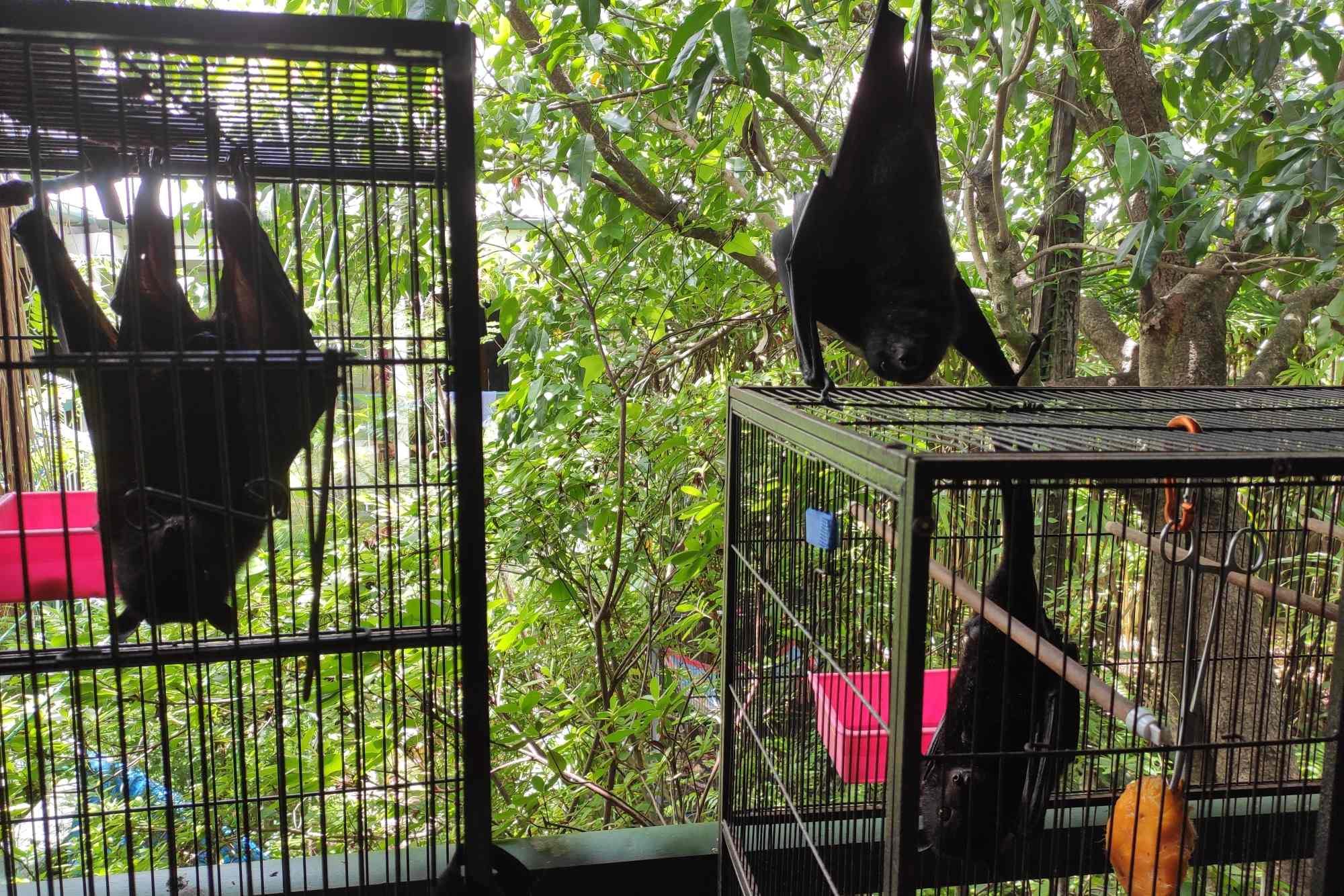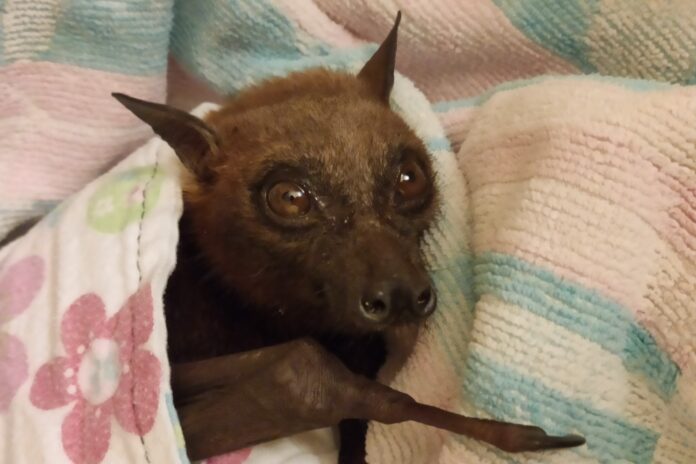A working group of experts is trying to establish the cause of a paralysis syndrome that has affected large numbers of flying foxes over the past few months.
Wildlife carers and veterinarians say flying fox syndrome has been a problem in south-east Queensland and northern New South Wales over the past few years but has been far worse this year.
Adding to the puzzle, they say the syndrome has been mirrored in the rainbow lorikeet population, with hundreds of birds found motionless on the ground.
Although the number of paralysed flying foxes and lorikeets has been highest in Brisbane and Ipswich, significant numbers have also been reported on the Gold and Sunshine coasts.
Cases of paralysed flying foxes peaked around February and March but were still occurring on the Sunshine Coast last month.
Scientists, researchers and veterinarians have teamed up to look at possible causes of the paralysis. Toxins such as botulism are being investigated.

Bat Rescue Inc spokesperson Carmel Givens said no direct link had yet been established between the paralysis in the flying foxes and the lorikeets but there were similarities.
“The flying foxes have similar symptoms. Their tongues stick out, they’re not very strong, they’re not able to swallow, and sometimes we have the lorikeets having the same problems,” she said.
Wildlife carer Sue Morris, who is involved in the research, said she had found prone flying foxes and lorikeets under the same tree.
She said people in Queensland and interstate who had come across outbreaks were now pooling their knowledge.
“We’ve been seeing the cases on and off since about 2016 but other people who have been doing it for longer have stories to tell,” she said.
RSPCA wildlife veterinary director Doctor Tim Portas said the combination of sick flying foxes and lorikeets put a huge strain on wildlife vet services and carers during its peak.
“It’s been a huge challenge. At the time it was occurring, we were inundated,” he said.
Dr Portas said all that could be done for the paralysed flying foxes was to care for them until they recovered.
“When they come in, if we see they’re very limp we can treat them with supportive care,” he said.
“We don’t know what the actual cause is.”

Dr Portas said treatment sometimes involved rehydrating the paralysed flying foxes, which could not eat or drink, or putting drops in their eyes because they could not blink.
He said it could be up to eight weeks before flying foxes taken into care with paralysis syndrome were ready to return to the wild.
Dr Portas said anyone who noticed a flying fox on the ground should immediately report it.
He warned people not to touch them themselves because of the potential for flying foxes to carry diseases such as Australian bat lyssavirus or rabies.
If you find a flying fox displaying the symptoms of paralysis, call the RSPCA on 1300 ANIMAL (1300 264 625), WILVOS on 5441 6200 or Bat Conservation and Rescue Queensland on 0488 228 134.
Like stories that inform, connect and celebrate the Sunshine Coast? So do we. Join an independent local news revolution by subscribing to our FREE daily news feed at the bottom of this article.





